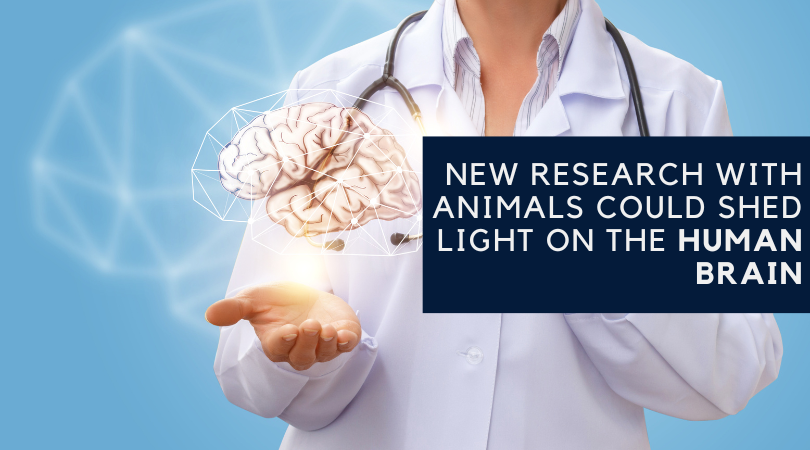New Research with Animals Could Shed Light on the Human Brain
Posted on
Mouse brains have obvious differences from the human brain, but have still proven to be important models for studying many aspects of the human brain. New mouse studies have given researchers insight into a number of brain functions that could have implications for humans, including how the brain determines whether an experience is positive or negative, fast food’s role in depression and anxiety, how pollution and stress alter brain development, and how waking up at night could boost memory.
Labeling Experiences Good vs Bad

How do you know if an experience is positive or negative? It may seem intuitive, but a new mouse study has identified a specific molecule that assigns experiences to one category or the other.
Researchers at the Salk Institute found that a signaling molecule in the brains of mice, called neurotensin, is largely responsible for determining whether the mice associated various environmental cues with positive or negative stimuli.
When the team blocked neurotensin in the brain, the mice experienced stronger fear-based responses and were less apt to respond to rewards. Increasing neurotensin had the reverse effect.
Researchers don’t know if the finding will be replicated in humans, but if so it could lead to new treatment options for conditions including addiction, anxiety, depression, and post-traumatic stress disorder.
Connection Between a High-Fat Diet and Impaired Cognition
A high-fat diet is bad for your body, and a new mouse study at the University of South Australia has determined it’s bad for your brain as well.
In the study, mice that were fed a high-fat diet for 30 weeks not only gained more weight than a control group and developed diabetes, they also showed a decline in cognitive abilities, signs of anxiety and depression, and higher levels of tau in the brain, which is a marker of Alzheimer's.
The research team said the study confirms the link between chronic obesity and diabetes with Alzheimer’s disease, psychiatric disorders, and cognitive decline, and underlines the importance of addressing the worldwide obesity epidemic.
How Pollution and Stress Alter Brain Development
There’s no question that pollution and stress are bad for our health, but a new mouse study shows that exposure to stress and pollution can actually cause health problems in offspring, particularly males.
High levels of air pollutants, such as automobile exhaust, has already been linked to higher risks of mental disorders such as schizophrenia and autism. When you add maternal stress to the mix, the risks are even higher.
To tests the effects, researcher Carina Block at Duke University—who herself had a child with health issues after being exposed to jet fuel exhaust and housing-related stress during pregnancy—exposed pregnant mice to poor housing and air quality conditions and measured the effects in their offspring.
The pregnant mice were exposed to diesel exhaust particles to mimic air pollution, and were given an inadequate amount of nest-building materials. Despite these stressors, the mother mice showed excellent parenting, and female pups were unaffected. Male pups, however, exhibited autism-like behaviors throughout their lives.
Block and her team hope their findings will lead to stronger clean air policies and the expansion of public housing options for the communities most likely to be affected.
Sleep Interruptions Could be Positive for the Brain
We generally think that “good” sleep should be uninterrupted, but a new study with mice at the University of Copenhagen suggests just the opposite. According to the researchers’ findings, brief awakenings could actually serve to boost your memory.
The study tracked the brain activity of mice during sleep, and found that the stress hormone noradrenaline wakes up the brain multiple times during non-rapid eye movement (NREM), at intervals from around 30 seconds to up to five minutes. Noradrenaline was previously thought to be inactive during sleep.
Most of the time, the sleeping subject does not notice or remember these brief “awakenings,” but they do affect the brain, allowing it to consolidate memories and improving recall of the previous day’s events. The discovery may help pave the way for new treatments for those who have sleep disorders.
We have so much to learn about how our minds work, but studying the human brain can be expensive and difficult. Fortunately, mice offer a way to observe and understand some of the most interesting and important functions of the brain, which could help scientists improve the lives of humans worldwide.